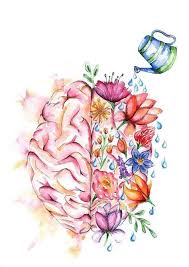Mental Health Awareness Week: Key Stages
Looking after your mental health.
Key Stages.
Childhood:
Potential difficult experiences for a child include:
Going to a new school, starting school for the very first time.
Establishing new friendships.
Moving away from familiar routines.
Being bullied.
Death of a family member or pet.
Divorcing parents.
Arguing parents/ abusive parents.
Too much time spent in a virtual world online so that the real world can start to feel non-negotiable.
Undeveloped relationship skills.
Of course, none of these events necessarily produce a depressive episode. And it should be noted that some adversity in a child's life can strengthen mental resilience. It is important to support your child, look out for changes in behaviour or mood however subtle. Help your child to have fun, relax, eat a healthy diet, exercise, read books, be creative.
Teach your child how to explain events to themselves in ways that are not depressing.
Offer unconditional love and support.
TEENAGE YEARS.
The 'teenager' is a relatively new term, and it is probable that many young adults have never been particularly comfortable with that 'in-between identity' of being not an adult but no longer being a child either. The actual term 'teenager' may be an unhelpful label these young people now have to deal with as well as raging hormones and mood swings.
They may also be feeling anxious about forming more adult relationships, struggle with feelings around sexual awakening, pressures to conform or indeed to not conform. Worry about the future, pressures over drugs, rapid physical changes.
Conflicts with parents are common at this time leading to more pressure.
All these pressures and feelings can be difficult to deal with and on top of all this they are having to study and pass exams as well.
Addictive behaviours such as drug or alcohol consumption, smoking or self-harm may start during the teenage years and could persist as a misguided coping mechanism if not superseded by healthier ways to meet needs.
Treating teenagers as young adults, helping them develop responsibilities and deal with the complexities of life, and actively teaching them emotional skills by re-evaluating explanatory styles, understanding their and other people's primal emotional needs, and even helping them examine their expectations from life, can all be powerful ways of supporting teenagers through difficulty.
celia.turner@hotmail.co.uk


